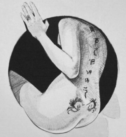Session
A massage session starts and ends with a cup of tea.
I am very curious about the reason for your visit or what is currently going on with you.
Sharing is allowed, but certainly not mandatory. All information is treated confidentially and remains within these walls.
We make clear agreements with each other about what we will and will not do during the massage.
We also both adhere to these agreements during the massage. In this way I create a safe space for both of us.
During the massage, you are the receiver and I am the giver, so there is no exchange.
I do not provide sexual services such as intercourse or oral satisfaction.
We also do not kiss.
My Tantric massage does not have ejaculation as its goal, it is intended to maintain and optimize your life energy.
Loving touch is, in my opinion,
“a respectful, accepting touch without lust as a goal”, and with that a Tantric massage can have a healing effect.
My touch accepts your body without judgement, there is no reason for shame, there is no goal, you do not have to perform.
It is a “flawless” learning, purely experiencing and (letting) feel your own body, accepting and learning to love.

To clarify,… loving touch can be healing, but this does not make me a “healer” or “cure”,…
I assume the self-healing principle of the human body, a principle that also underlies, for example, homeopathy.
There is an opportunity to shower before and after the massage.
My expertise lies – in addition to a full massage and body-to-body – in Lingam massage.
Furthermore, I will follow the “advanced training” in March at “The Prostatic Portal -Prostate awareness, healing and massage-“, I have already done the basic training in February 2024 (The Prostatic Portal Couple Weekend).
Further information see the link:
Practitioner | The Prostatic Portal
A session with me takes up 2 to 3 hours in total. I charge a standard fee of 150 euros for a session.
As a condition for a massage with me, we both agree to the following code of conduct:
ETHICAL CODE OF CONDUCT OF THE TANTRAWIJZER FOUNDATION
The TantraWijzer Foundation is committed to promoting tantra and tantra-inspired work in
the Netherlands.
Dealing professionally with the forms of contact that are involved in this work requires a high
degree of responsibility and ethical awareness. The purpose of this ethical code of conduct is to express this
ethical awareness and to be a starting point for discussion when questions arise
about the ethical conduct of a tantra professional. In addition, it offers clarity to clients
or participants about ethical conduct within Tantra.
The code is drawn up in such a way that it provides a framework within which tantra-inspired work can
be carried out, while at the same time leaving sufficient room for the diversity in approach and offering of
individual professionals.
If the code maintains a higher ethical standard than the law, professionals will
have to adhere to the code. If the code appears to conflict with the law, the code must be
reinterpreted to conform to the law. Tantra professionals who endorse the ethical code of conduct of Stichting TantraWijzer refer to this on their website.
When Stichting TantraWijzer receives a report about a provider, the reporter will be referred to another agency, depending on the nature of the report. If Stichting
TantraWijzer is aware that a complaints procedure is underway against one of the providers on the website,
TantraWijzer reserves the right to make the details of this provider on the TantraWijzer website invisible
until the procedure is completed.
By endorsing the ethical code of conduct, the professional indicates that he/she will act professionally and that he/she can and wants to be accountable to clients, participants or colleagues. He/she also confirms that he/she is reliable in agreements and statements, and can be held accountable
for behavior in the event of non-compliance with the rules set out in the code of conduct. Terms
Tantra: Tantra refers to the Hindu and Buddhist spiritual tantra movements and the forms of ‘Neo-tantra’ inspired by them. In addition to Tantra, this broad field of work can also include aspects of Taoism, psychology, sexology, mindfulness, empowerment, Shamanism, Yoga, etc.
Tantra professional: A person or legal entity that offers tantra sessions and/or training as a profession, or is professionally inspired by a tantra tradition or ideology.
Client/participant: A person who uses, or wishes to use, the services of a tantra professional for a fee.
Session/training: The term ‘session’ can describe several forms of work in this document and must be read in the broadest sense of the word. This could be an individual session, a group session, training or workshop, a retreat, etc.
Ethical Code of Conduct TantraWijzer, version 1.1, January 2020 Page 2 of 4
Ethical Code of Conduct
- The tantra professional
- 1.1 – Tantra is more of a way of life than a profession. A professional is primarily a tantrika and
- practices what he/she teaches or passes on to clients or students.
- 1.2 – A tantra professional has a clear vision of what Tantra means to him/her, which
- aspects of his/her work are tantric, and which aspects come from other methods/forms/traditions/etc.
- 1.3 – The tantra professional is aware of the limits of his/her qualities, knowledge, and
- skills and takes this into account when accepting new clients, or filling in
- a session/workshop/etc.
- 1.4 – The professional only offers methods and work forms in which he/she is sufficiently skilled.
- Depending on the work form, this skill can be obtained on the basis of (certified)
- education, personal experience, training, etc.
- 1.5 – A tantra professional works hygienically.
- 1.6 – He/She is not under the influence of narcotics or mind-altering substances during a session and
- does not treat clients who are under the influence.
- 1.7 – The professional does not refuse clients or participants on the basis of race, origin, belief,
- sexuality, or on the basis of any other factor that can be considered discriminatory.
- Assessing the suitability to participate in a session or workshop, based on experience
- or appropriateness to the content of the workshop, is the professional responsibility of
- the provider.
- Boundaries and frameworks during a session
- 2.1 – The professional always offers clients the opportunity to choose whether or not to participate in an activity or interaction. A client is never obliged to participate and will not be forced to do so in any way.
- 2.2 – Prior to a session or training, the boundaries of the interaction at that moment are determined. These boundaries are respected throughout the entire session/training. Consider, for example, whether or not to touch certain parts of the body during a session, or a limitation of the possibility of intimate contact between participants during a workshop.
- 2.3 – In a longer trajectory, a participant has the space to review or redefine his/her boundaries in order to support their own development.
- 2.4 – During a session, the set boundaries cannot be expanded, neither at the request of the client nor at the request of the professional. For example, when the desire arises to receive a more extensive massage than discussed. This desire can be expressed afterwards
- after which the client and professional can independently determine whether this is desirable in a follow-up session.
- Ethical Code of Conduct TantraWijzer, version 1.1, January 2020 Page 3 of 4
- 2.5 – If the client or professional wants to narrow the boundaries during a session, this is always done.
- 2.6 – If a working method involves physical contact from a supervisor, this contact occurs
- from conscious contact, is appropriate for the situation and is aimed at the development of the client or
- participant.
- 2.7 – During a session, workshop or trajectory, moments are built in when a client or
- participant gives verbal and/or written consent to entering into physical contact.
- The professional relationship: division of roles and power relations
- 3.1 – A tantra professional aims in all cases for the well-being of the client or participant and acts
- to promote this well-being and not to cause any harm.
- 3.2 – The professional who works in a group is aware of the operation of group dynamics and
- of (implicit) group pressure that can be felt.
- 3.3 – The professional is aware of the power relationship that arises between a professional
- or teacher and a client. He/she will not abuse this power relationship in any form.
- 3.4 – The tantra professional confirms that he/she does not satisfy his/her personal/emotional/erotic needs via
- clients. A session is and always remains focused on the development of the client.
- 3.5 – Until at least three months after the last professional contact, the professional does not
- enter into an intimate or sexual relationship with a former client. 3.6 – When a personal attraction arises from the professional and/or the client, this is discussed
- (possibly under professional supervision) with the aim of keeping the professional frameworks clear.
- The tantra field
- 4.1 – The professional strives for an integral approach to the client’s question and
- stimulates communication and integration with regular therapy or medicine where necessary.
- 4.2 – He/She takes into account the client’s health and any contraindications for a
- treatment.
- 4.3 – The tantra professional has an open attitude towards colleagues, is willing to learn from others and
- listen to criticism and suggestions.
- 4.4 – In case of doubt about the ethical conduct of a colleague, professionals who endorse this code
- can address each other in a positive and constructive way. If necessary, TantraWijzer can be contacted for
- this conversation.
- 4.5 – The professional is open to intervision or supervision with/from colleagues. 4.6 – He/She does not seek to compete with other professionals or to take over clients.
- Ethical Code of Conduct TantraWijzer, version 1.1, January 2020 Page 4 of 4
- 4.7 – The tantra professional knows his/her own competencies, and refers when these are not
- sufficient for the client’s question.
- 4.8 - The professional speaks in a respectful and honest manner
- about the work (field) in the public and private sphere and upholds the ethical code of conduct.
- Conflicts, openly approachable
- 5.1 – In the event of a conflict with a client or colleague, the tantra professional is prepared to mediate or
- seek other means to resolve the conflict.
- 5.2 – When a conflict arises between a client and a professional, the aim is to
- find a solution that serves both parties. Sufficient attention must be paid to
- both the client’s story and the professional’s accountability. 5.3 – If it appears that a professional has acted reprehensibly, he/she is prepared to continue training or
- developing to prevent such conduct in the future.
- Version management
- Version Date Changes
- 1.0 04-12-2019
- 1.1 25-01-2020 Terminology: “ethical code” changed to “ethical code of conduct”
- Paragraph added in introduction regarding handling reports
